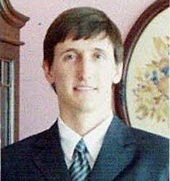
Can you test for something that is not already known? Is it possible for a teacher to construct a test that asks questions for which the teacher does not know the answer? Can researchers construct experiments for which they do not expect or anticipate the results? Certainly, most of us will answer “No” to these propositions. How then does progress occur? Progress, growth, advancement, development all requires the conceptualization of something new. The result, the outcome, did not exist previously. Therefore, it could not have been “learned”, and it is worth pondering whether it could have even been consciously conceived.
Perhaps random coincidence plays an important role. What-is-known is continually and arbitrarily weaved, fused, jumbled, and combined together in new ways. Whereas most of the amalgamations are a flash-in-the-pan and swiftly flame out, some of the results or outcomes stick. A niche has been filled. Some feedback, at some level, has allowed the fresh concoction to gain a toehold, to lock in, and grow. It’s hard, perhaps impossible, to “know” what conditions or circumstances allow for innovation, invention or creation, but when it happens we call it “genius”. Genius assumes the robe of destiny. We logically construe that it was “only a matter of time” before prodigy and revelation revealed their selves to the world―that is despite the roles of coincidence, privilege, and the statistical dynamics of incomprehensibly large quantities of interactions.
My 40-month-old son consistently amazes me with his “genius”. His ability to associate his growing conceptualizations (i.e., schema) with ridiculously abstracted images, and then communicate to me these novel mappings using socially-codified linguistics, is uncanny. His ability to cross-pollinate schematic mappings in novel ways, ways in which I had not thought of but undoubtedly find “logically” accurate, completely blows my “logical” mind away. My responses to these moments of genius are predictable. I smile. I gloat. I give big hugs, and I kiss his forehead.
But, of course, this is the only way it could be. Furthermore, it is the only way it could be for any child. Those dynamic, and especially at the early stages of development largely random, syntheses of mappings can only probabilistically sustain themselves and their nested position within the “real” world if, through a series of feedbacks at a variety of levels, our socially-shared conventions allow.
Unfortunately, for many children their socially-shared conventions are entangled in deficient environments, often bereft of nurture, compassion and support, and sometimes full of stress and violence. These circumstances may be the fault of the parents, the community, the region, and/or the teacher, but they are just as likely, if not more likely, the result of the overall structure itself.
If the structure only encourages conformity and punishes novel thoughts, then “genius” in all is stifled. This cognitively-conforming system will find itself exceptional at quickly and efficiently learning what-is-known (and this is important in its own right), but it will find progress and development blunted when it approaches the frontiers of knowledge.
All would do well, especially parents, teachers and leaders, to encourage new and novel thoughts, no matter how incorrect. Unsustainable conceptions and conceptualizations will burn themselves out. Ideas with no niche or sustaining social feedback will quickly die. Yet, in the explosion of “unknown” and “illogical” bad ideas, “genius” will thrive.

